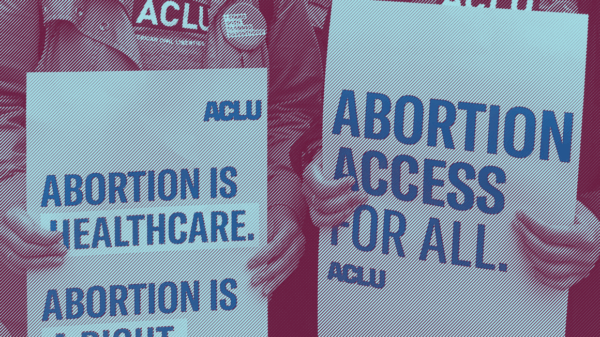A Recent History of Restrictive Abortion Laws in Texas
From the time of the Roe v. Wade decision in 1973, Texas law has always required that only doctors perform abortions, regulated abortion clinics to keep patients safe, and limited third-trimester abortion to rare and severe medical cases. But over the past two decades, anti-abortion politicians have tried to stop people from accessing abortion by passing unnecessary restrictions:
- 2003: Texas passed the so-called “Women’s Right to Know Act.” The law mandates that doctors give misleading information about the abortion procedure to the patient and provide alternatives to terminating the pregnancy. The law then makes patients wait 24 hours before the abortion procedure. The law also requires that all abortions at 16 weeks of gestation or later be performed in an ambulatory surgical center, which is basically a mini-hospital. Not one of Texas’ 54 non-hospital abortion providers met the standard of an ambulatory surgical center when the law took effect in 2004.
- 2005: Texas banned abortions after 24 weeks and also enacted a requirement of parental consent for people under 18 seeking an abortion.
- 2011: Texas enacted a mandatory sonogram law requiring a person seeking an abortion to undergo a sonogram at least 24 hours before the abortion procedure. The law requires doctors to display the sonogram, make the fetal heartbeat audible, and give a verbal explanation of the result of the sonogram.
- 2013: Texas passed House Bill 2, or “HB2” as it is commonly known, an omnibus abortion bill that imposed several additional restrictions on abortion:
- Doctors must have admitting privileges at a hospital within 30 miles of the abortion facility.
- Abortion after 20 weeks post-fertilization is banned, unless a patient is at risk of death or the fetus has a severe medical problem.
- Doctors administering medication abortion must follow a state-mandated protocol.
- All abortion facilities must meet the standards of ambulatory surgical centers (mini-hospitals), even if a facility only provides abortion by providing pills to swallow.
- Reproductive rights advocates challenged two parts of this law at the Supreme Court, arguing that the law had nothing to do with health or safety. The Supreme Court agreed, and struck down the admitting privileges and ambulatory surgical center requirements in 2016. Other portions of the law remain in effect.
- 2015: Texas heightened the burden of proof for a minor seeking judicial bypass and restricted the minor’s options for seeking judicial bypass in a county other than their home county.
- 2016: Texas's state health agency required clinics to pay extra money to bury or cremate the tissue resulting from an abortion. Reproductive rights advocates challenged this law as unrelated to the health and safety of the patient, and a court agreed and stopped the law from going into effect.
- 2017: Texas banned the safest and most common procedure for second-trimester abortions, forcing doctors to either use experimental procedures or stop providing second-trimester abortions altogether. Reproductive rights advocates challenged this law as an undue burden on the right to abortion, and a court agreed and stopped the law from going into effect.
- 2017: Texas banned insurers from including coverage for abortion in a comprehensive health insurance plan, requiring people to purchase separate coverage for abortion care.
- 2019: Texas passed House Bill 16, which criminalized abortion providers who do not provide medical treatment to a fetus if born after an abortion. This is a situation that is virtually impossible in Texas because abortions are banned after 20 weeks and a fetus is not viable until 24 weeks. To that end, since Texas began collecting data on the procedures in 2013, there is not a single recorded instance of this happening.
- 2019: The Texas Legislature passed a ban on government affiliation with abortion providers or their affiliates, Senate Bill 22. The bill prevents government entities from entering into partnerships or providing any assistance to clinics that are affiliated with abortion providers, even if they do not provide abortion themselves. This cuts off vital support to communities who rely on these low-cost clinics for basic health care like birth control, gynecological exams, cancer screenings, diabetes testing, and much more.
- 2021: The state legislature passed Senate Bill 8, a law that bans abortion as early as six weeks in pregnancy, before many people know they are pregnant. This law effectively eliminates abortion access in the state and imposes an unconstitutional ban on abortion. This unprecedented law also authorizes private individuals to file civil lawsuits to “enforce” the unconstitutional abortion ban. This scheme allows anyone — a relative, an abusive partner, or even a stranger — to sue the health care provider and seek a court order that would block the patient’s abortion and prevent the provider from performing any abortion after approximately six weeks in pregnancy. The law also incentivizes bounty hunting by offering money “damages” of at least $10,000 to anyone who successfully sues an abortion provider or anyone who “aids and abets” someone seeking abortion after approximately six weeks in pregnancy.

